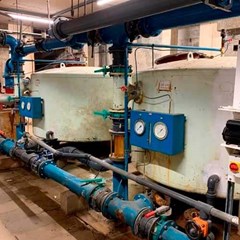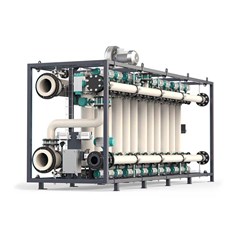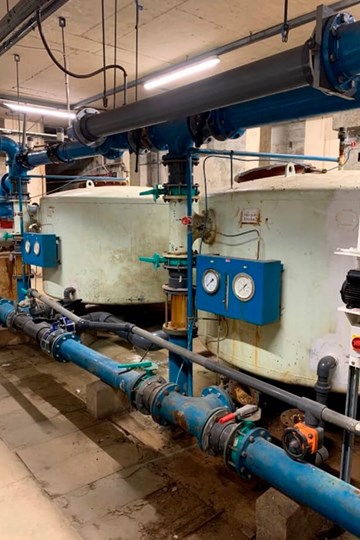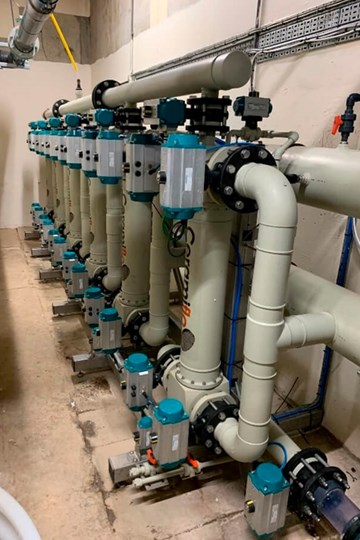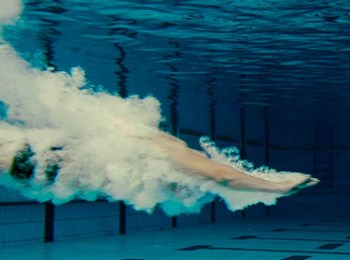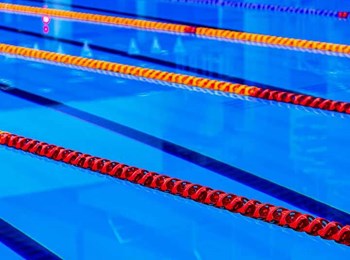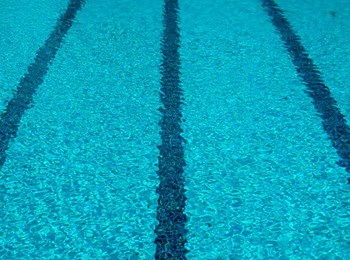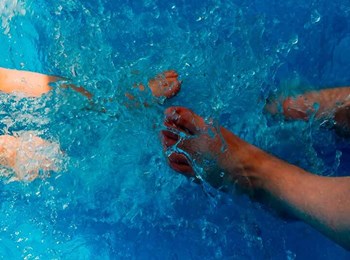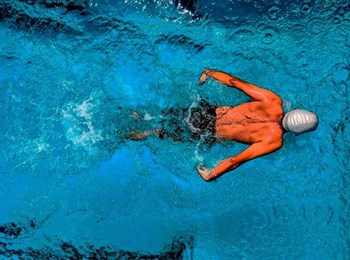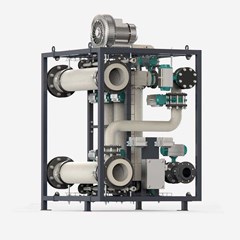Ceramic membrane filters are modern technology, gaining traction within all aspects of water filtration as it is a durable, robust, and cost-effective solution. A membrane pool filtration solution consists of several housings, which contain ceramic membranes made of inorganic materials, such as silicon carbide. Click here to learn more about what a ceramic membrane is. As ceramic membranes are made of some of the hardest materials in the world, they are highly durable and long-lasting. The dirty water from the swimming pool is pumped into the ceramic membrane filters through a feedwater inlet during water filtration. Pressure will lead the water through the porous membrane structure, while the membrane retains dirt, debris, and particles down to 3 microns. As this is a much denser pore size structure than that offered by a sand filter, fewer chemicals are needed to provide effective disinfection to remove bacteria and various pathogenic organisms. As membranes operate, dirt, debris, and particles will also accumulate on their surfaces, which will slow down the water flow. To restore the water flow, a backwash is performed. Yet, water consumption for backwash is reduced significantly. Let us go through the same five aspects as above.
Filtration – Ceramic membrane filters can filter down to 3 microns. Thus, ceramic membranes deliver a much more thorough filtration process and remove bacteria, pathogens, as well as viruses. This ultimately provides cleaner water and a safer pool and spa environment.
Cleaning – Ceramic membranes also require cleaning. Yet, they need 70 % less water for backwash than a sand filter.
Chemicals – Ceramic membranes also require chemicals. Still, they require a reduced amount. In total, chemical consumption can be reduced by 30 %, and combined chlorine can be reduced by 40 %. This is both healthier, but it also secures low OPEX.
Footprint – As ceramic membranes are extremely compact, they require a reduced footprint. In fact, ceramic membranes only take up ¼ of the footprint than a sand filter. This means that you can either upgrade your capacity or you may even avoid a building extension once you need a new water filtration solution. The LiqTech pool solution fits through a standard doorway.
Lifetime – Ceramic membranes are produced of silicon carbide (SiC), the second hardest material globally, only beaten by diamonds. Click here to learn more about SiC. This means that ceramic membranes can go on and on, and you do not need to worry about changing or upgrading the solution.
Thus, ceramic membranes provide superior water quality, a healthier environment, and a low cost of ownership.
